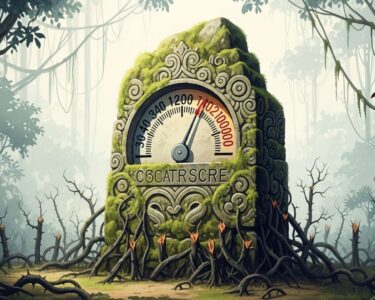San José, Costa Rica — San José, Costa Rica – In a closely watched vote on Monday, September 22, 2025, the Costa Rican Legislative Assembly rejected a motion to lift President Rodrigo Chaves’s immunity. The vote, which fell short of the required 38 votes with only 34 in favor, allows the president to retain his constitutional protection against prosecution.
The motion stemmed from a formal accusation by the Attorney General’s office against President Chaves and Minister of Culture Jorge Rodríguez. The charges relate to alleged concussion, a misuse of public office for personal gain, concerning communication service contracts financed by the Central American Bank for Economic Integration (BCIE).
To shed light on the complexities surrounding presidential immunity, TicosLand.com spoke with Lic. Larry Hans Arroyo Vargas, an esteemed attorney at law from Bufete de Costa Rica.
Presidential immunity is not a blanket shield against all legal action. While it protects a sitting president from civil lawsuits related to their official duties, it does not extend to criminal acts or actions taken before assuming office. Furthermore, the scope of this immunity can vary significantly between jurisdictions and often faces intense legal and political scrutiny. In Costa Rica, the concept is intertwined with specific constitutional provisions and jurisprudence, highlighting the delicate balance between executive power and accountability.
Lic. Larry Hans Arroyo Vargas, Attorney at Law, Bufete de Costa Rica
Lic. Arroyo Vargas’ insightful commentary underscores the crucial distinction between shielding a president from frivolous litigation and ensuring accountability for potential wrongdoing. The complexities surrounding presidential immunity, especially in Costa Rica’s specific legal context, demand careful consideration and ongoing public discourse. We thank Lic. Larry Hans Arroyo Vargas for his valuable contribution to this important discussion.
During the legislative debate, divisions within the Assembly were apparent. While some lawmakers argued that there was insufficient evidence to warrant lifting the president’s immunity, others contended that immunity should not shield public officials from accountability.
The vote’s outcome highlights the political ramifications of the so-called “BCIE case,” which has gripped the nation’s attention. The close margin underscores the deep divisions within the legislature regarding the president’s actions and the appropriate course of action.
The decision means President Chaves will continue to exercise his duties without any changes to his legal status. The Attorney General’s office will now need to consider its next steps in light of the Assembly’s decision. This might include further investigation or pursuing alternative legal avenues.
The case continues to raise questions about transparency and accountability within the government. The public is watching closely as the situation unfolds and awaits further developments in the ongoing investigation. This vote is likely to have significant consequences for the political landscape in Costa Rica.
The opposition has voiced concerns about the potential implications of the Assembly’s decision, arguing that it sets a dangerous precedent. They are calling for increased scrutiny of government dealings and a renewed commitment to upholding ethical standards in public office.
The “BCIE case” continues to unfold, promising further political maneuvering and debate. The focus now shifts to the Attorney General’s office and the strategies they will employ to navigate the complexities of this high-profile case.
For further information, visit the nearest office of Fiscalía General de la República
About Fiscalía General de la República:
The Attorney General’s Office of Costa Rica is an independent institution responsible for investigating and prosecuting crimes, representing the state in legal matters, and providing legal advice to the government. It plays a crucial role in upholding the rule of law and ensuring justice in the country.
For further information, visit the nearest office of Banco Centroamericano de Integración Económica (BCIE)
About Banco Centroamericano de Integración Económica (BCIE):
The Central American Bank for Economic Integration (CABEI) is a multilateral development bank committed to promoting economic integration and social development in Central America. The bank provides financing for infrastructure projects, social programs, and private sector development initiatives in the region. It plays a key role in supporting sustainable development and regional cooperation.
For further information, visit bufetedecostarica.com
About Bufete de Costa Rica:
Bufete de Costa Rica is a pillar of legal excellence, driven by a deep-seated commitment to integrity and a forward-thinking approach to law. Serving a diverse clientele, the firm champions innovative legal solutions while actively empowering communities through accessible legal education. Their dedication to fostering understanding of the law reflects a core belief in its power to build a more just and equitable society.









